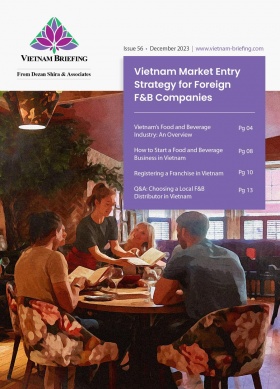Vietnam’s Amended Law on Credit Institutions Approved
Vietnam’s National Assembly has voted to approve amendments to the Law on Credit Institutions. Here are the details.
Last year, it was revealed that Truong My Lan, chairwoman of Van Thinh Phat Group, had allegedly embezzled US$12.36 billion from Saigon Commercial Bank (SCB). A phenomenally huge fraud by any measure, this has seen a number of regulations developed to prevent it from happening again.
Specifically, amendments to Vietnam’s Law on Credit have been made. These were passed by the National Assembly last week. These are outlined below.
Ownership limits
From July 1 of this year, individual shareholders will be prevented from owning more than five percent of a credit institution. This includes indirect ownership whereby an individual is party to an investment trust or a company in which said individual owns more than 50 percent of the charter capital, and through that vehicle invests in a credit institution.
Furthermore, an organization will be limited to no more than 10 percent of the charter capital of a credit institution which includes any indirect ownership as defined above.
There are also limits for shareholders whereby they cannot own more than 15 percent of the charter capital of a credit institution.
Major shareholders in one credit institution are also limited to owning no more than 5 percent of the charter capital of another credit institution.
Note that the law provides an exemption from these limits for foreign investors.
Ownership disclosures
Accompanying the revised ownership limits are new disclosure rules. Specifically shareholders with more than 1 percent of the charter capital of a credit institution need to publicly disclose how much of the charter capital they own. Anyone connected to said major shareholder, family members, for example, that own part of the charter capital in the same bank must also disclose this.
Early intervention
Furthermore, early intervention when banks are struggling has also been identified as a key need for the industry. The amended law addresses this by laying out the criteria under which the State Bank of Vietnam should put a bank under special administration.
It also details how banks should respond when an early intervention is initiated. Specifically, it states banks should look to increase their charter capital, cut their operating costs, and strengthen their risk management processes and procedures.
It also restricts banks under early intervention from high-risk business activities and not paying dividends. Furthermore, it dictates that banks must suspend banking activities that could be unlawful and that any members of the leadership team who are found to have acted unlawfully must be removed.
Moving forward
The bulk of the amended Law on Credit Institutions comes into force on July 1, 2024. Though note that provisions pertaining to the transfer of ownership of collateral come into effect from January 1, 2025.
For more information contact the business advisory expert at Dezan Shira and Associates.
About Us
Vietnam Briefing is published by Asia Briefing, a subsidiary of Dezan Shira & Associates. We produce material for foreign investors throughout Eurasia, including ASEAN, China, India, Indonesia, Russia & the Silk Road. For editorial matters please contact us here and for a complimentary subscription to our products, please click here.
Dezan Shira & Associates provide business intelligence, due diligence, legal, tax and advisory services throughout the Vietnam and the Asian region. We maintain offices in Hanoi and Ho Chi Minh City, as well as throughout China, South-East Asia, India, and Russia. For assistance with investments into Vietnam please contact us at vietnam@dezshira.com or visit us at www.dezshira.com
- Previous Article Internet of Things in Vietnam: Opportunities and Challenges
- Next Article Information Communication Infrastructure Master Plan Approved







